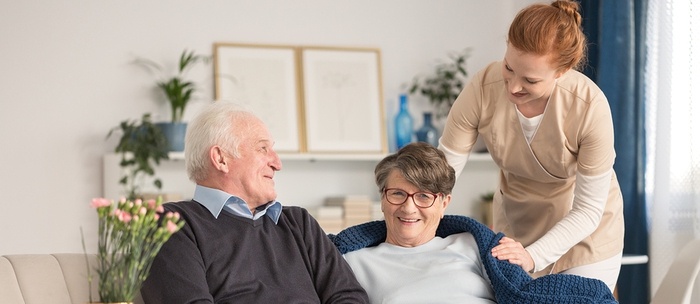
Former first lady Barbara Bush recently made news when she elected to focus on “comfort care” instead of pursuing additional medical treatments following years of failing health. Read on for a closer look at what “comfort care” means, along with why it’s an option for people with many different kinds of illnesses.
Defining Comfort Care
Many people have misconceptions about the term "comfort care," thinking it's a variation on hospice care. However, experts say this isn’t the case. For starters, unlike hospice care, comfort care does not mean patients have less than six months to live and/or extremely poor prognosis. Nor does it mean they’ve decided to end all medical treatment. (For more on hospice care, consult our videos on End of Life Care and Hospice: What You May Not Know. )
UAB Center for Palliative and Supportive Care director Dr. Rodney Tucker told NBC News, “I think that using the term ‘comfort care’ is a bit of a misnomer. Essentially when patients elect comfort care, they’re electing aggressive measures in terms of symptom control. It may be treatment for pain, shortness of breath, nausea, vomiting, anxiety, and so on. It also includes the location of care, so where the patient prefers, such as at home. But by all means, comfort care is medical care.”
The position that comfort care is actually a type of medical care is reiterated by Dr. Vyjayanthi "VJ" Periyakoil, an associate professor of medicine at the Stanford University Medical Center. “In the home [of someone who has chosen comfort care] there are often the same types of professionals that you see in a hospital. This could be a primary care physician doing home visits, a palliative care doctor, a respiratory therapist, a physical therapist, a psychologist, nurses and social workers. Any discipline you see in hospital, you’ll see in the comfort care approach outside it,” he said.
Not Giving Up, Changing Focus
The main takeaway? Comfort care does not mean giving up or hastening death. Rather, it means a shift in focus from curing a particular ailment to “comfort, quality and dignity,” according to Tucker. In making this decision, meanwhile, patients may not only end up enjoying a better quality of life, some even live longer. Said Periyakoil, “We know based on extensive science and research that when people feel better, they live longer.”
Is Comfort Care Right for Your Aging Loved One?
All of which begs the question: How do you know if comfort care is right for your aging loved one? According to NBC News, anyone who is in failing health with medical insurance can get comfort care -- even if they’re not past the point of curative treatment. In this sense, it overlaps with palliative care, which adopts a holistic, mind-body approach to addressing the impact of a disease as opposed to merely treating symptoms.
This approach also encompasses the patient’s family. “Really it’s about not only comfort, but also making sure your family is as comfortable as possible and has direction because this is a very difficult time for them,” said Tucker.

If you’re wondering whether comfort care is a possible option for your aging loved one, open lines of communication are a must. In addition to talking to aging loved ones to determine their wants, needs and goals, their physicians can offer insights into whether comfort care is a good fit for your situation. “Barbara Bush has led a life of grace and dignity and I very much see this as a continuation of that, and of making her own decisions,” concluded Tucker.
mmLearn.org offers a large library of free videos for caregivers of older adults, covering topics pertaining to senior care. Whether you are a healthcare professional or a family caregiver, if you are caring for an older adult we know that you will find mmLearn.org an essential learning and guidance tool for all of your caregiver training needs." For more online training for caregiver resources, visit our free online caregiver video library today.

